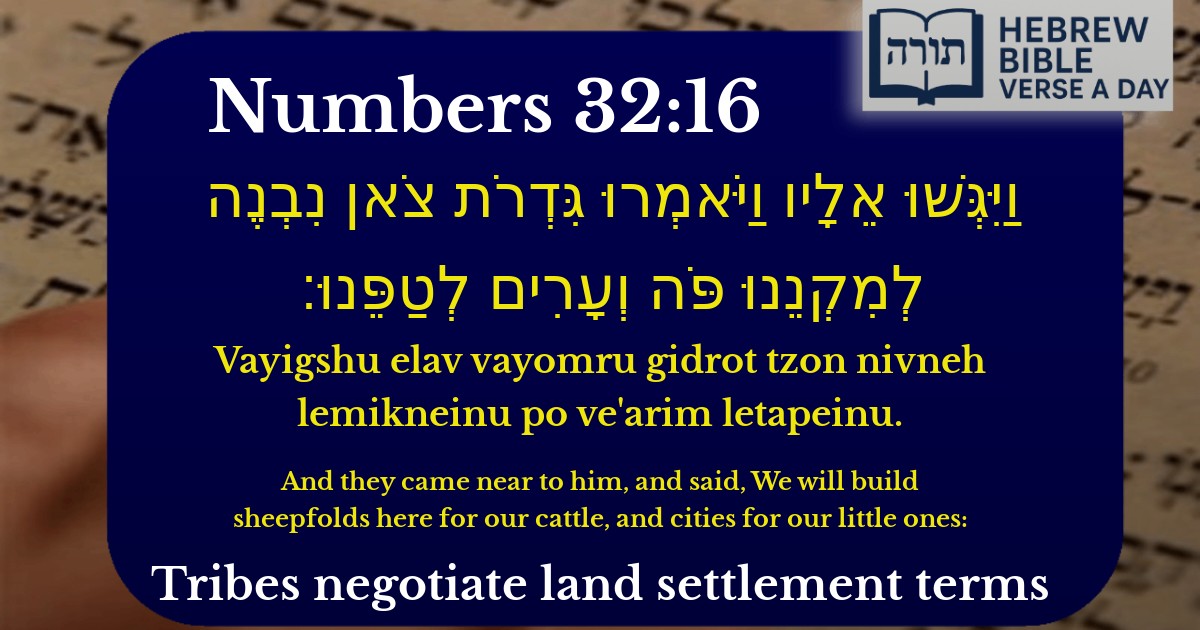Join Our Newsletter To Be Informed When New Videos Are Posted
Join the thousands of fellow Studends who rely on our videos to learn how to read the bible in Hebrew for free!
Hebrew Text
וַיִּגְּשׁוּ אֵלָיו וַיֹּאמְרוּ גִּדְרֹת צֹאן נִבְנֶה לְמִקְנֵנוּ פֹּה וְעָרִים לְטַפֵּנוּ׃
English Translation
And they came near to him, and said, We will build sheepfolds here for our cattle, and cities for our little ones:
Transliteration
Vayigshu elav vayomru gidrot tzon nivneh lemikneinu po ve'arim letapeinu.
Hebrew Leining Text
וַיִּגְּשׁ֤וּ אֵלָיו֙ וַיֹּ֣אמְר֔וּ גִּדְרֹ֥ת צֹ֛אן נִבְנֶ֥ה לְמִקְנֵ֖נוּ פֹּ֑ה וְעָרִ֖ים לְטַפֵּֽנוּ׃
Parasha Commentary
📚 Talmud Citations
This verse is not quoted in the Talmud.


Context in the Torah
This verse appears in Bamidbar (Numbers) 32:16, where the tribes of Reuven and Gad approach Moshe with a request to settle on the eastern side of the Jordan River, outside the Land of Israel proper. Their proposal includes building sheepfolds for their livestock and cities for their children before joining the other tribes in conquering Canaan.
Rashi's Explanation
Rashi comments on the phrase "גִּדְרֹת צֹאן נִבְנֶה" ("we will build sheepfolds"): The tribes emphasized their livestock first, revealing their misplaced priorities—caring more for their material possessions (mamon) than their children. This drew Moshe's rebuke later in the passage (32:24), where he reverses their wording, instructing them to first build cities for their children and only then enclosures for their sheep.
Ramban's Perspective
Ramban (Nachmanides) offers a more charitable interpretation: The tribes may have mentioned livestock first because they needed immediate grazing land, whereas building cities would take longer. However, he acknowledges that their phrasing still reflected a lack of proper mesirut nefesh (dedication) for settling Eretz Yisrael, as they sought comfort outside its borders.
Midrashic Insights
Halachic Implications
The Mishneh Torah (Hilchot Shemitah 13:8) derives from this episode that one must always prioritize family needs over material concerns. The Chofetz Chaim expands on this, teaching that the tribes' error serves as a perpetual reminder to align one's values with Torah priorities—placing spiritual growth and family welfare above wealth accumulation.